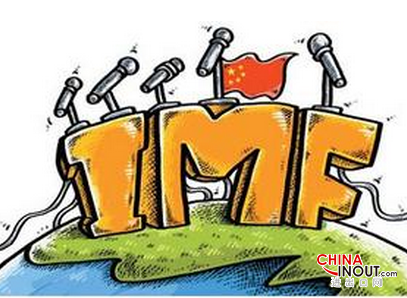在拖延数年之后,美国国会终于关于通过了国际货币基金组织(IMF)的份额和治理改革方案,该方案将会给予新兴经济体更多的话语权,
中国在国际货币基金组织的投票权份额将从3.8%提高至6%,同时,国际货币基金组织的基金总额将扩容一倍,达到约6600亿美元。这也是自IMF和世界银行以管理战后经济的名义成立以来最大的一次组织变动。国际货币基金组织改革是在2010年世界金融危机的余波下,经过188个成员国同意提出的。
随着中国的投票权份额的上升,美国的份额将从16.7%下降到16.5%。但美国依然保有一票否决权。印度的投票权份额将由现在的2.3%上升到2.6%。最大的输家是欧洲经济体,他们将面临投票权的减少。但是美国国会的共和党员已经开始担心美国正在削弱的影响力。
国际货币基金组织总裁克里斯蒂娜·拉加德对美国接受改革表示:“美国国会批准份额改革是值得欢迎的、具有前瞻性的重要一步。这将加强国际货币基金组织在维护全球金融稳定中的地位”
中国银行认为这次改革“将会提高新兴市场和发展中国家在国际货币基金组织的代表性和发言权,同时也有利于保护国际货币基金组织的信誉、合法性和有效性”
上个月,国际货币基金组织刚刚决定将中国的货币人民币,和美元,欧元,日元和英镑一起作为储备货币。
The US Senate has adopted long-awaited reforms to give emerging economies a greater say in how the International Monetary Fund (IMF) is managed.
China's voting rights will rise to 6%, from 3.8% and IMF resources will double to about $660bn. This is the biggest shake-up since the IMF and the World Bank were set up to manage the post-World War Two economy. The IMF reforms were agreed by its 188 members in the aftermath of the world financial crisis in 2010.

As China's voting rights rise, the US will see its share drop from 16.7% to 16.5%. The US also retains its veto power. India's voting rights will rise to 2.6% from the current 2.3%. The biggest losers are European economies which will see their voting rights diminished. But Republicans in the US Congress had been concerned at the diminishing US influence.
IMF chief Christine Lagarde hailed the US adoption as a "a welcome and crucial step forward that will strengthen the IMF in its role of supporting global financial stability".
And China's Central Bank said the reform "will improve the representation and voice of emerging markets and developing countries in the IMF and is conducive to protecting the IMF's credibility, legitimacy and effectiveness".
Last month, the IMF decided to include China's currency, the renminbi, as a reserve currency, alongside the US dollar, the euro, the yen and the British pound.











